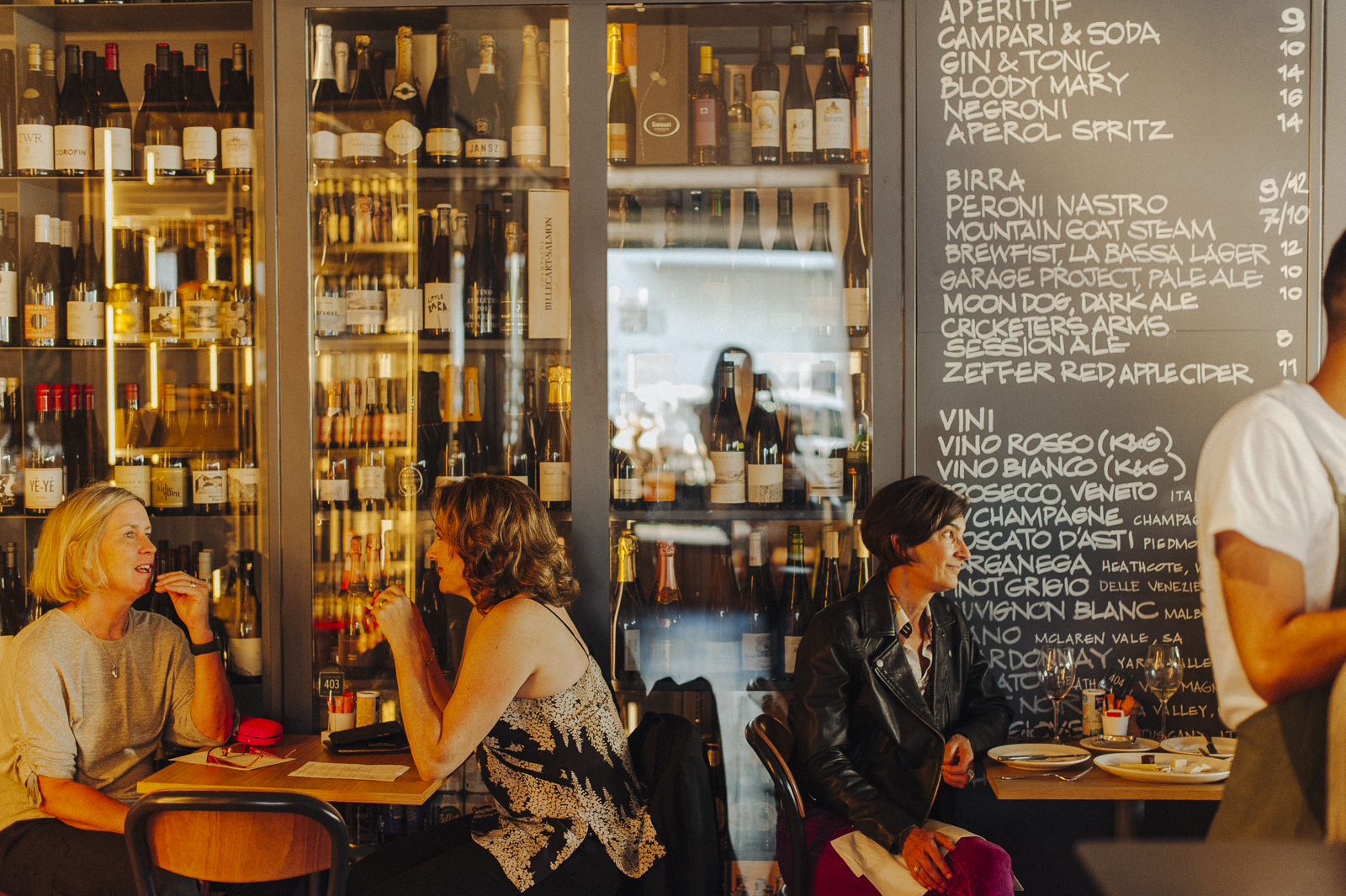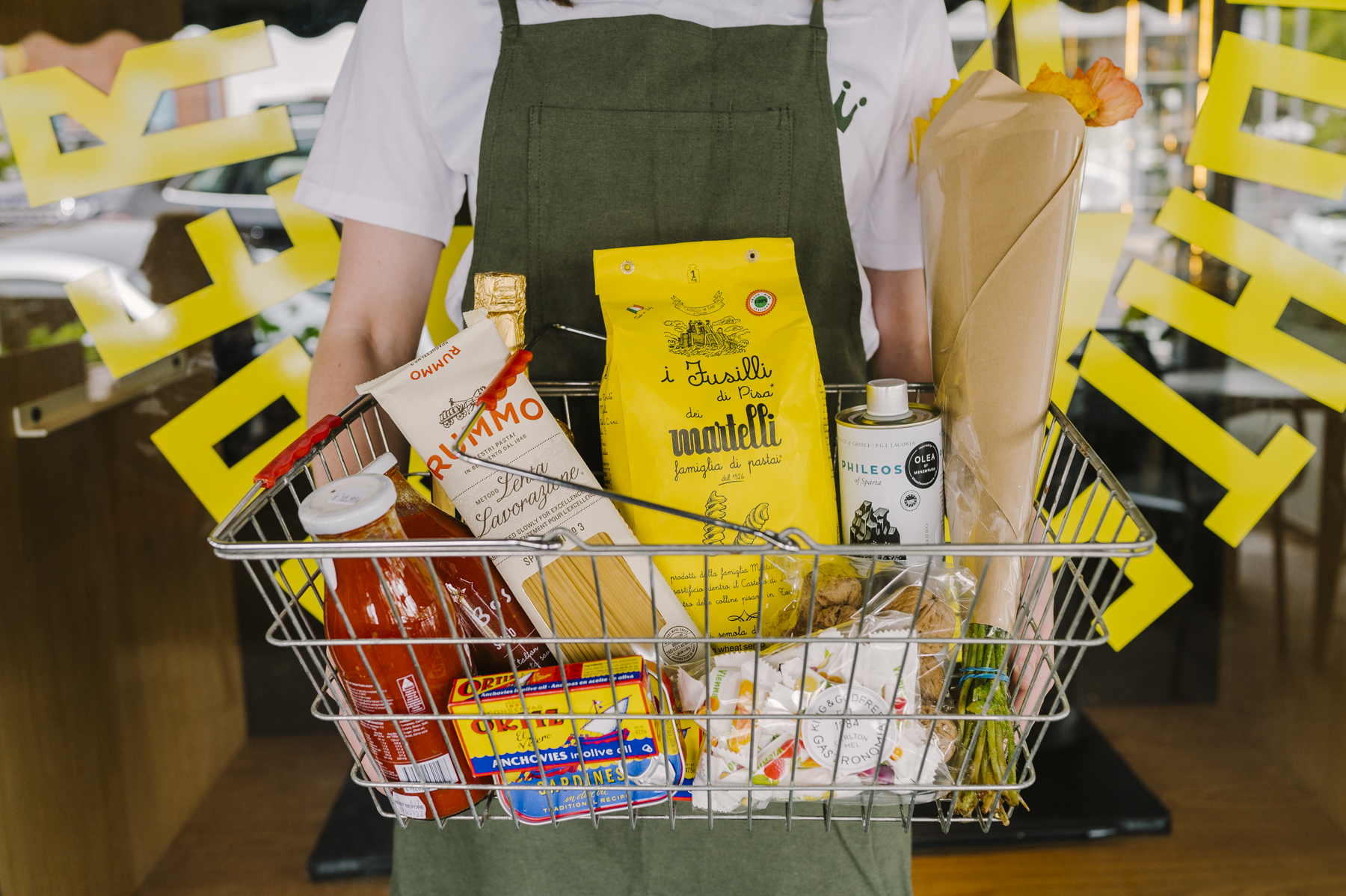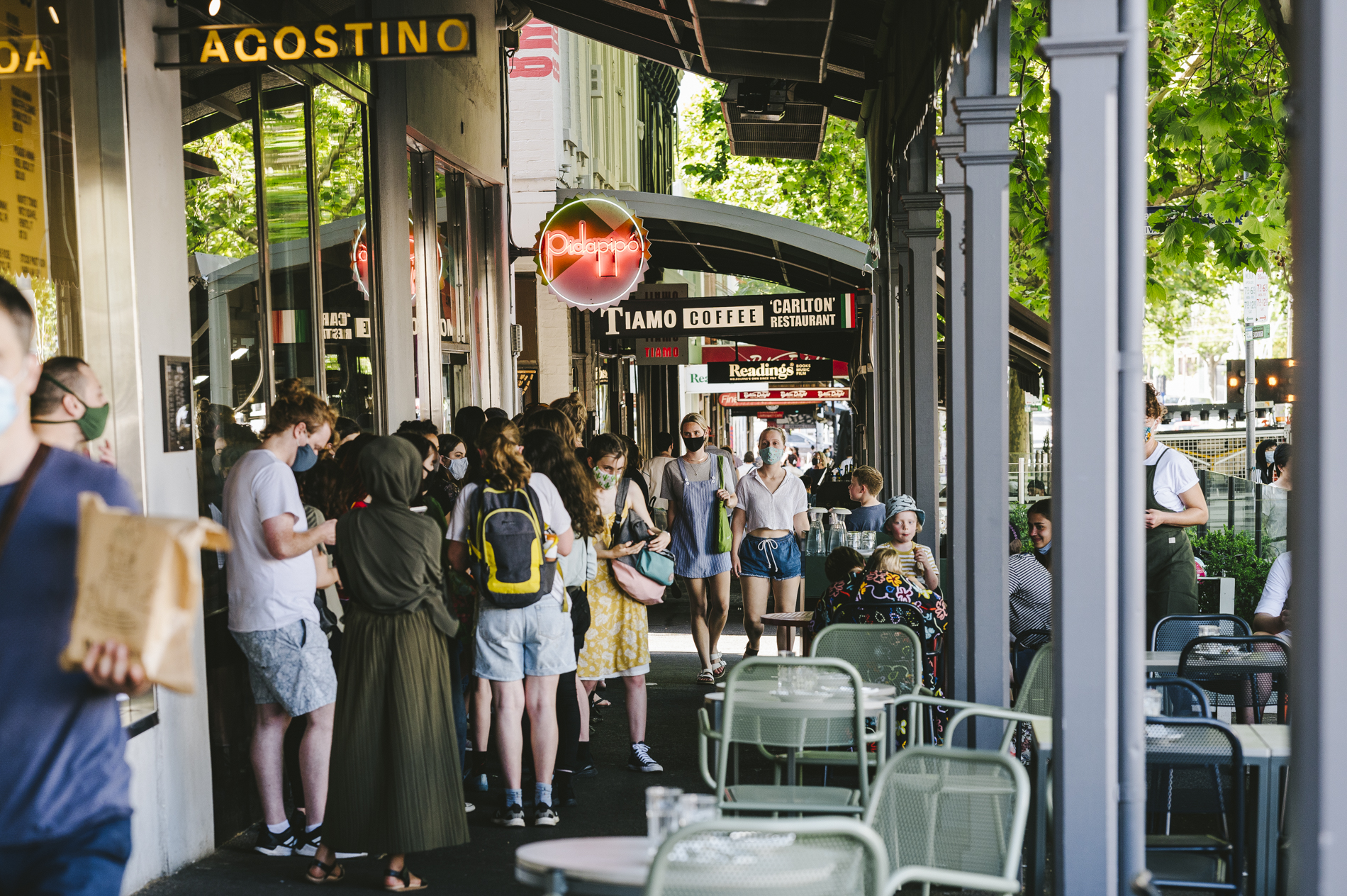There’s a 1983 newspaper clipping from The Age that’s easily Googled, titled “The Saving of a Street”. It opens with a Carlton man called Dave Campbell, who first started working at King & Godfree, on the corner of Lygon and Faraday streets, as a junior hand in 1938. He stayed there into his late eighties, and would have been one of the shop's longtime employees by the time an Italian immigrant named Carlo Valmorbida bought the store in 1955.
Building an Italian Empire: Stories From King & Godfree, the 150-Year-Old Jewel in Lygon Street’s Crown
It’s one of the oldest licensed grocers in Australia. And when Carlo Valmorbida took over the heritage-listed Carlton site in 1955, he changed the face of Melbourne food forever. In recent years, it’s undergone a multimillion-dollar revamp – and defied a bid from McDonald’s – to become a microcosm of Italian culture unlike any other in Melbourne.
In the article, Campbell longs for the days when customers borrowed cash from the neighbourhood shop to buy petrol across the road, putting the small debt on their grocery account – that neighbourly bond between locals and business owners. The story goes on to detail the importance of preserving Lygon Street as a shopping, not just dining, strip – despite climbing rents, clogged streets and urban-planning woes.
Nearly 40 years on, Luisa Valmorbida, the daughter of Carlo, has the same philosophy. “We need people to be able to come here to shop, because it’s a village,” she says. “Once it’s only restaurants and cafes, it goes downhill. That’s why we’d never get rid of the deli.
“McDonald’s wanted to lease the site when we were discussing whether or not to renovate King & Godfree, and we just couldn’t do it for Carlton’s sake. It would have been so much easier … The deli is really not profitable, we keep it open because it’s part of the history.”
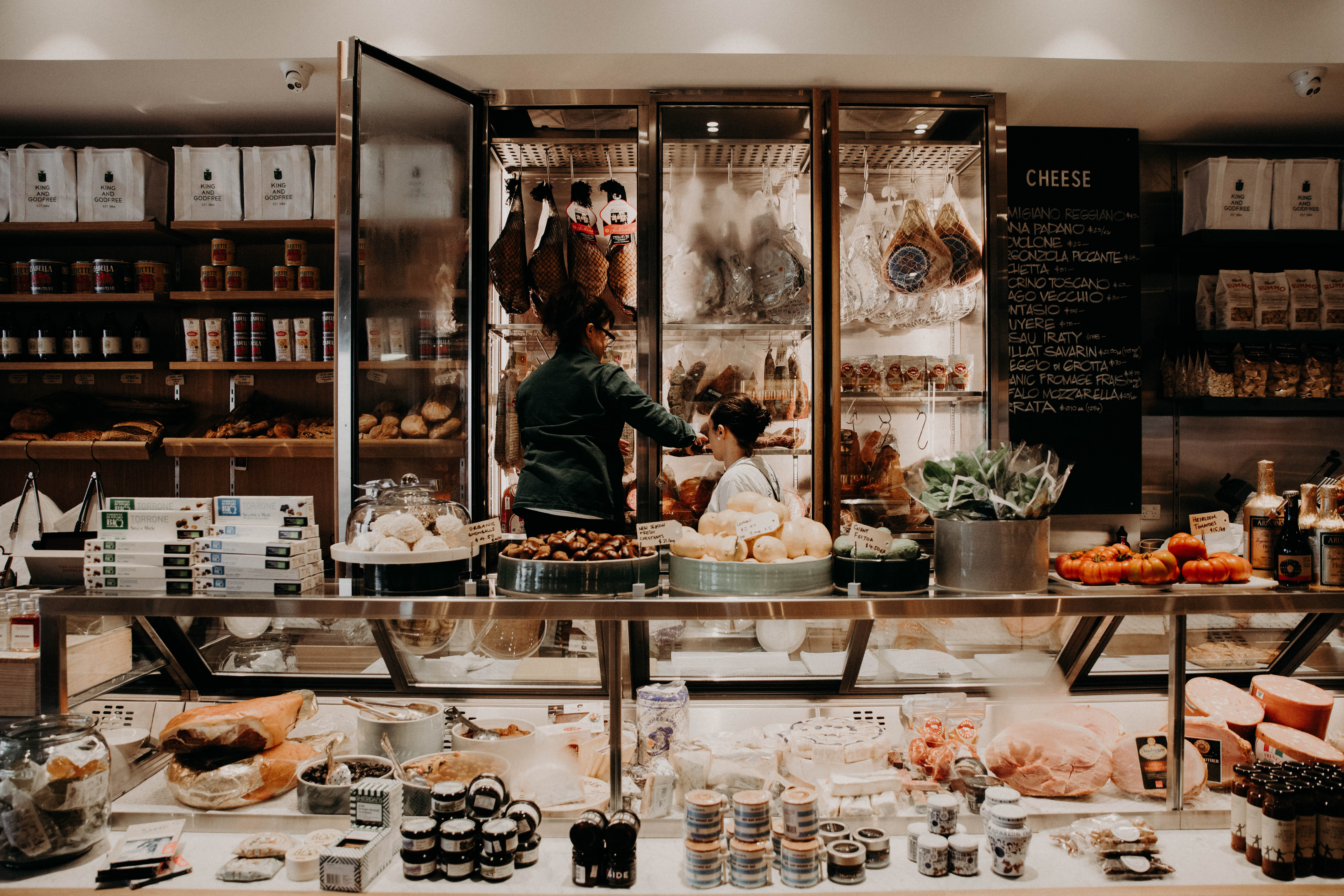
King & Godfree is among the oldest licensed grocers in Australia. It celebrated its 150th birthday last year and has been the beating heart of Lygon Street since it got its name in 1884, courtesy of then-owners Edwin King and George Godfree. (The original owners of the site, and the grocer that occupied it, were the Richards Brothers – no first names known – who opened the store in 1871.)
Before the Second World War, Carlton was a Jewish neighbourhood. The Italian coffee shops and restaurants that dominate today were tenanted by the likes of Lachman’s green grocer, Smorgon’s butcher and Cohen’s kosher restaurant.
But change began brewing in the two post-war decades following 1945, during the Australian government’s “populate or perish” campaign, which gave financial incentives to mostly European workers to immigrate to Australia.
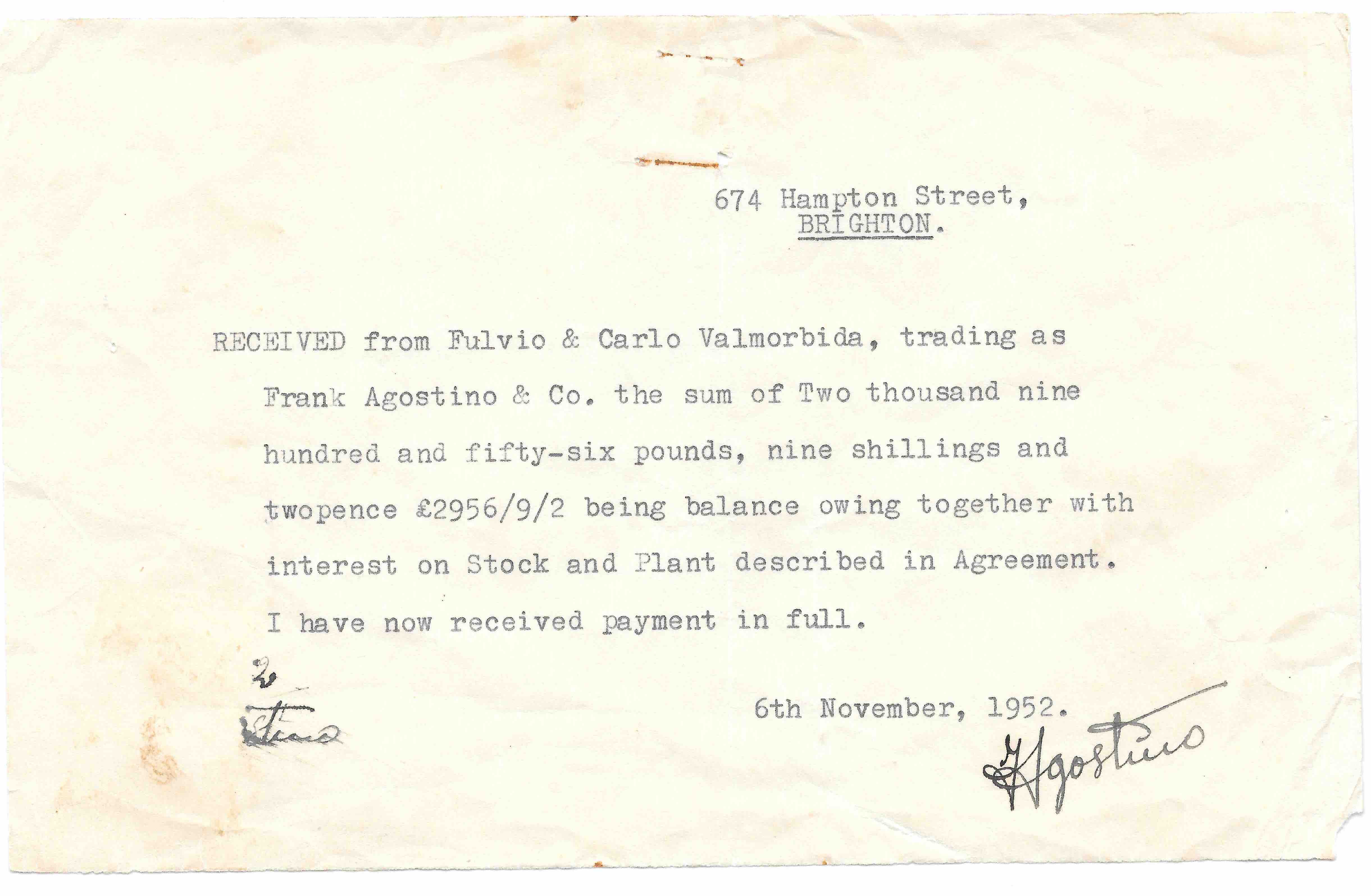
As new migrants turned Melbourne into a patchwork of cultural communities, new food centres emerged with them. In Carlton, mortadella and prosciutto slowly eclipsed pastrami and chopped liver. Italian migrants arrived in Australia weighed down with suitcases of coffee and buoyed by the possibilities of a fresh start. By 1971, the number of Italian-born residents had peaked at 121,000 in Victoria alone.
“My father used to look at that corner block in the heart of little Italy, where Lygon Street meets Faraday, and aspired to own it," says his son John Valmorbida.
When Carlo began stocking Italian staples in King & Godfree in the mid-1950s – parmesan cheese, olive oil, tins of tuna and tomatoes, mineral water, anchovies – he was set not only on catering to his community, but on introducing “exotic” ingredients to Australians.
“As children, we were very aware that we owned the shop, but we were taught in our family to behave like nothing belonged to us. We weren’t allowed to take anything off the shelf without paying for it, not even a slice of mortadella.”
Carlo drove racing cars in Italy, before he emigrated to Australia, and his son John believes the skills required to master the racetrack were transferrable; his father had a gift for seeing the road ahead, and was always quick to spot an opportunity.
“Carlo was one of the first people to sell parmesan cheese in this country,” his grandson Luca Sbardella – now co-director of King & Godfree, alongside his cousin Jamie Valmorbida – told Broadsheet in 2018, for a story about delis that fundamentally changed Australian culture. “No one really wanted it, so he’d deliver a block of parmesan cheese to people all around the neighbourhood and ask them to try it. He told them that if they liked it, they could buy it from him.”
“That’s another thing that Carlo did well,” says Jamie. “He was a really good marketing brain.”
That’s something Jamie has inherited from his nonno. He worked for a marketing and publishing company before joining the family business and thinks deeply – others might say obsessively – about every facet of the marketing, branding and design of the precinct.
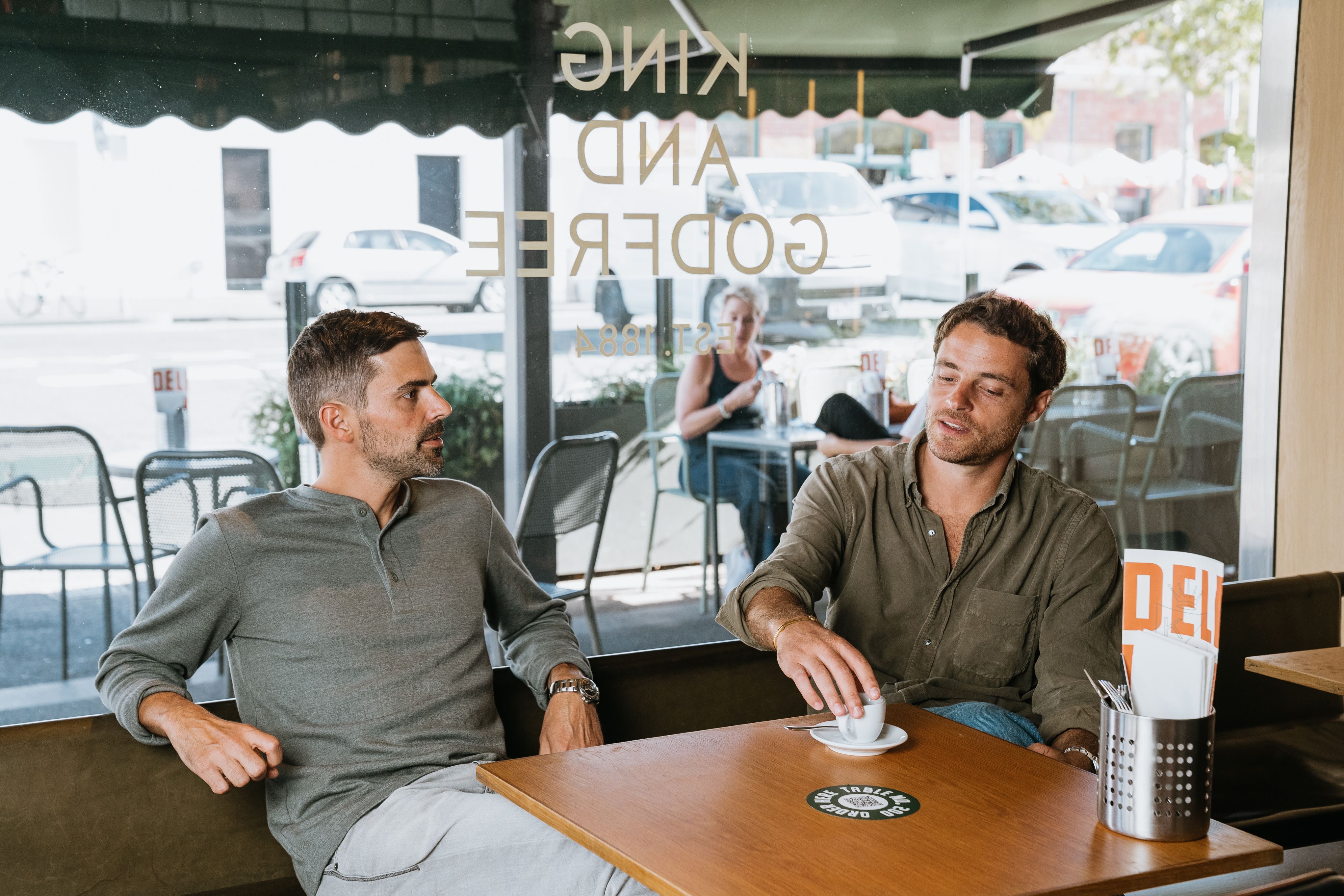
“Ronnie asked me if I felt Italian and I was like, ‘Not at all’. I don’t know why I said that. I just remember him shaking his head and Dad being shocked. Over time, I have become more proud of my Italian heritage, and want to hold onto the memories and customs.”
In 2018, King & Godfree reopened after the heritage-listed building underwent a three-year, multimillion-dollar redevelopment to become an all-in-one hospitality, retail and office precinct.
Its new era was spearheaded by Jamie and Luca, whose intention was to bring the deli into alignment with Melbourne’s current food scene. That meant more of a dining focus, prompted by changing demographics and the growth of supermarkets. They enlisted some of Australia's most influential creatives in this grand reimagination, including architects Herbert & Mason, Chris Connell and Dion Hall, and design practices Projects of Imagination, Studio Round and U-P.
“Luca and I had a similar vision,” says Jamie. “We had our parents support and buy into the idea, and they were always great. But then getting them to commit – that was the turning point, when it became real. We never looked back.”
The project burgeoned – from renovating the deli and adding an espresso bar, to redeveloping the building, to adding a rooftop. It’s tiny microcosm of the Italian market.
“What once was a retail store has been taken to another level by Jamie and Luca, who have a fresh perspective while still understanding Italian tradition,” says John, Jamie’s father and Luca’s uncle (Luca is Luisa’s son). “They have a fresher view about what the essence of Italy is, and how to make it relevant to who we are today.”
Jamie grew up working in the deli during school holidays. He recalls Christmases, when the fridge would heave with produce and you couldn’t walk through the grocery – and its labyrinth of shelves – without “tripping over a panettone”.
“We had such pride in the store and all the family was so passionate about it,” says Jamie. “But as I got a bit older, my memories were always dreaming about its potential in terms of its location, history and the building.”
Today, the King & Godfree corner is also home to Agostino, the family’s upmarket Italian wine bar and restaurant (with a dramatic bluestone cellar), while Pidapipo – named for the Italian version of Simon Says that Carlo used to play with his grandchildren – scoops some of Melbourne’s best gelato. Upstairs, Johnny’s Green Room is a destination rooftop bar. Beyond the family businesses, though, are the precinct’s tenants: Di Stasio Pizzeria, Grown Alchemist and Faraday House, with offices and hot desks occupied by publicists, advertisers, architects, music promoters and other creatives.
“We’re careful about what goes in and who goes in,” says Luisa. “I think we’ve added a lot to the street, and what I hope we have really added is how we curate it.”
All these years later, King & Godfree remains a community hub. You might order via QR code, but staff come outside to chat and pat local pups. Some even put ice in their water bowls. Carlo would approve; son John recalls his father's attitude to customer service – greeting every customer with the same warmth and hospitality, ensuring they felt welcome and taken care of.
Today, executive chef Matteo Toffano’s kitchen churns out simple standouts: breakfast bruschetta, burrata salads, panini, calamari fritti and a handful of pastas.
And Carlton’s diversity is represented in the deli’s customers, from multi-generational Italian families through to international students sipping espresso with a side of cannoli. In some ways, the precinct is unrecognisable from Carlo Valmorbida’s King & Godfree; in many ways, it is exactly the same.
Luisa remembers Lygon Street in its heyday, the early years, with King & Godfree at its epicentre. As a kid, she would beg her mother for a shilling to slot into the rocking-horse ride out the front.
.jpg)
“As children, we were very aware that we owned the shop, but we were taught in our family to behave like nothing belonged to us,” says Luisa. “We weren’t allowed to take anything off the shelf without paying for it, not even a slice of mortadella.”
She’s worked in and on the business her whole life, and has the stories to show for it. There was the billiard room downstairs that had to be shut down when it took an illicit turn – “more than pool tables”. Her brother and cousin sold flowers out the front – until the city council told them they couldn’t. There was the married manager who used to take his girlfriends down to the cellar, and the regular who dressed as a wizard. She remembers a customer who claimed to be Italian when ordering half a culo (or “arse”) of mortadella.
Melbourne cook and food personality Julia Busuttil Nishimura (author of cookbooks Ostro and A Year of Simple Family Food) has been a regular since her early university days in the 2000s, before the refurb. “I was always on Lygon trying to practice my Italian, and I loved King & Godfree,” she says. “It was so different back then. It was just a deli, and the bottle shop went super far back, like a cave. I would stop there after uni and pick up things from the deli to make dinner with, and a bottle of wine to take to my housemates.”
Once, she even applied for a job, but never got an interview. Now, Julia visits with her two little boys for coffee and biscotti, or meets friends for an aperitivo.
“It still has that old charm,” she says. “But it’s grown as the city’s grown and as people’s need have grown. It’s cemented itself even more as an icon of Lygon Street.”
When King & Godfree closed, both during lockdowns and redevelopment, Lygon Street felt it. Each reopening was like CPR, breathing life and energy back into the strip – supported by other local businesses including Brunetti and Cinema Nova.
Forty years or so since “The Saving of a Street” was published, you could write a modern iteration of the same article. The difference now, though, is that the King & Godfree precinct is continually finding ways to reinvigorate the street and give Melburnians new reasons to visit – and revisit.
While Luisa reflects, her nephew, Jamie, is always thinking ahead. Even as he’s being interviewed about this milestone, he’s talking about what’s happening next: a King & Godfree cookbook out in November, and Pidapipo Laboratorio, the gelateria’s new flagship, which he’ll open alongside his sister, Lisa, on Brunswick Street, Fitzroy, in April. As we chat, passers-by stop to greet him, the way they did with his parents and grandparents before him.
If King & Godfree is a hive that helps keep Lygon Street buzzing, the Valmorbidas are the bees.
But for Jamie, it wasn’t a path he planned to take. He recalls a vivid memory of restaurateur Rinaldo “Ronnie” Di Stasio pulling the family into his St Kilda restaurant.
“Ronnie asked me if I felt Italian and I was like, ‘Not at all’,” says Jamie, who was 16 years old at the time. “I don’t know why I said that. I just remember him shaking his head and Dad being shocked.”
“Over time, I have become more proud of my Italian heritage, and want to hold onto the memories and customs. Now that Nonno [Carlo] has passed and Elsie [Carlo’s wife] is getting older, that’s super important.”
The Corner Grocer, King & Godfree’s 150-year cookbook, carries on not just the family legacy, but the legacy of Lygon Street. Along with recipes centred on key Italian ingredients, there are stories from the community and the history of Carlton.
“The whole project is to celebrate Italian food and culture,” says Jamie. “What we do here is an expression of family, and that’s more powerful than anything.
“People thought we were crazy doing it as one big family, but 70 years later, we still haven’t killed each other.”
King & Godfree: The Corner Grocer Book is out now. Order online for $59.99.
Photographs by Arianna Leggerio, Kate Shanasy, Sarah Pannell. Historical documents and photography supplied by King & Godfree.
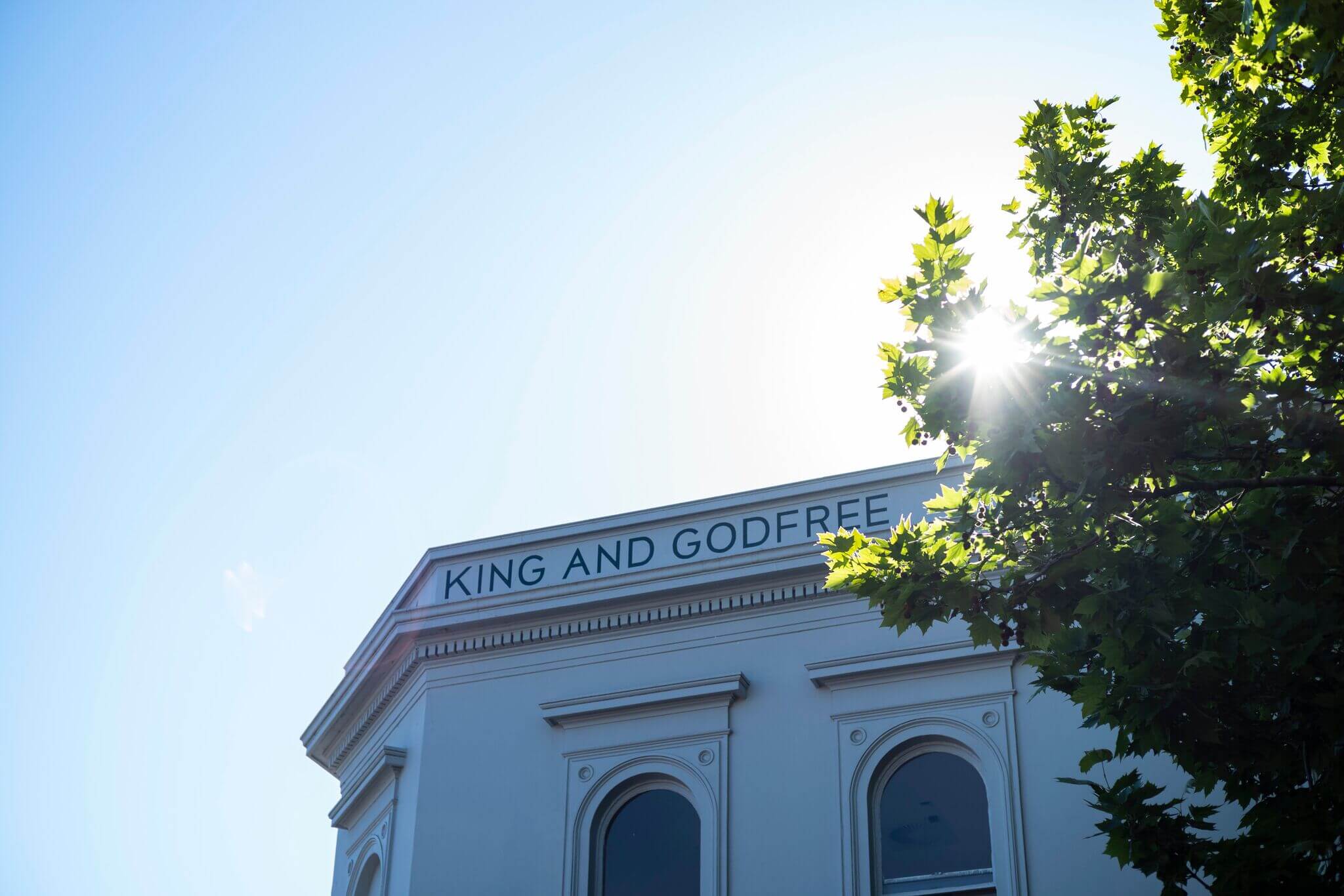
More Broadsheet Special Features about Melbourne
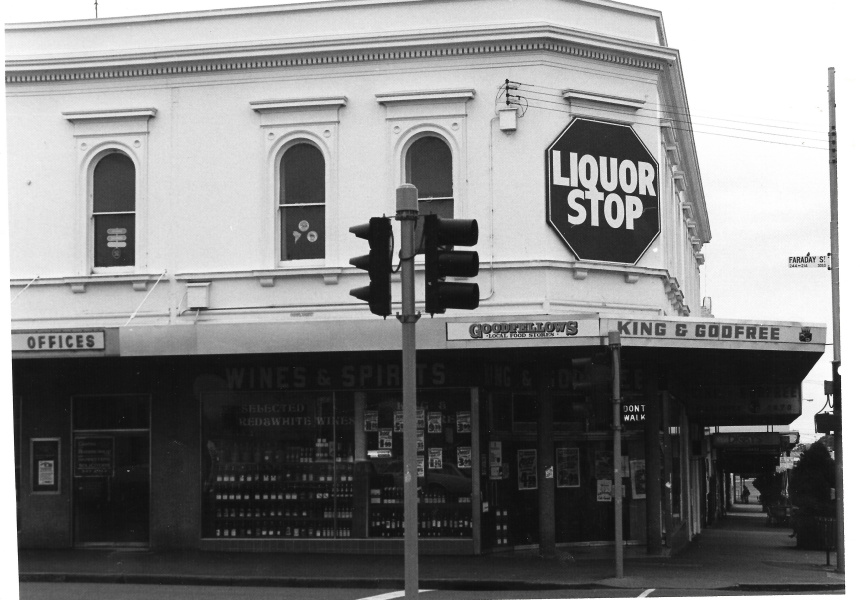
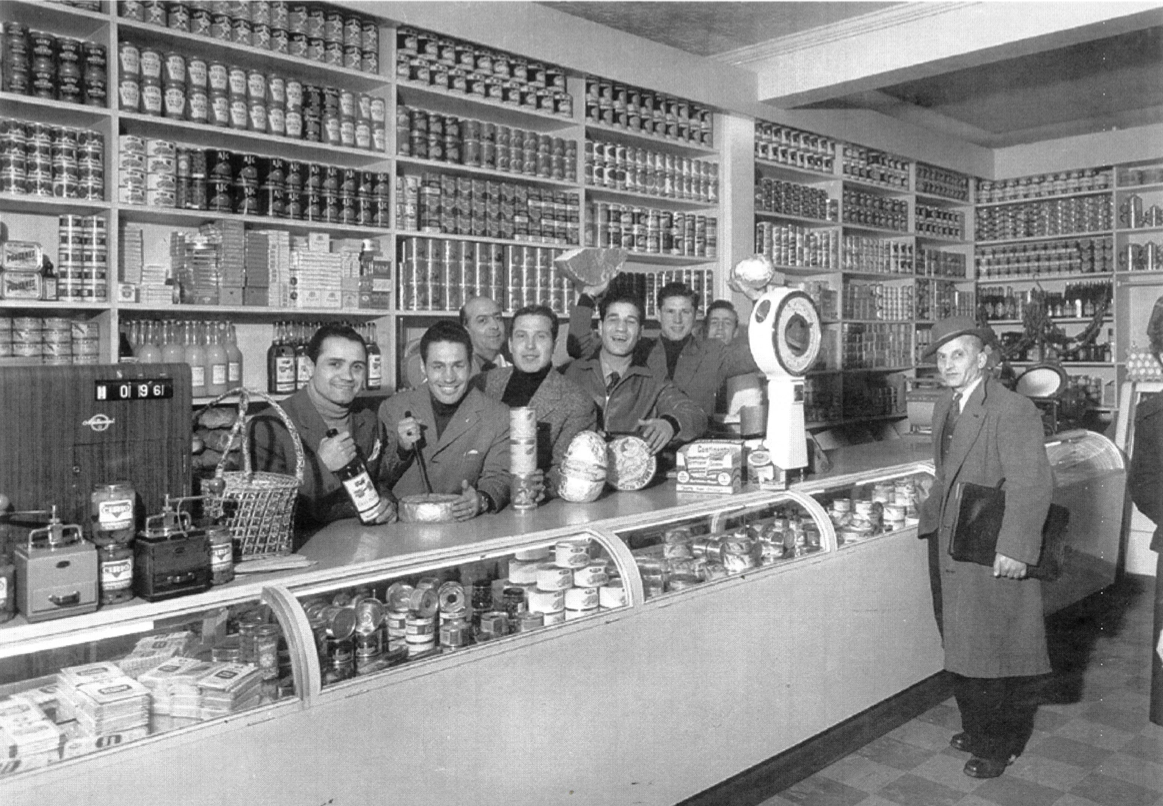
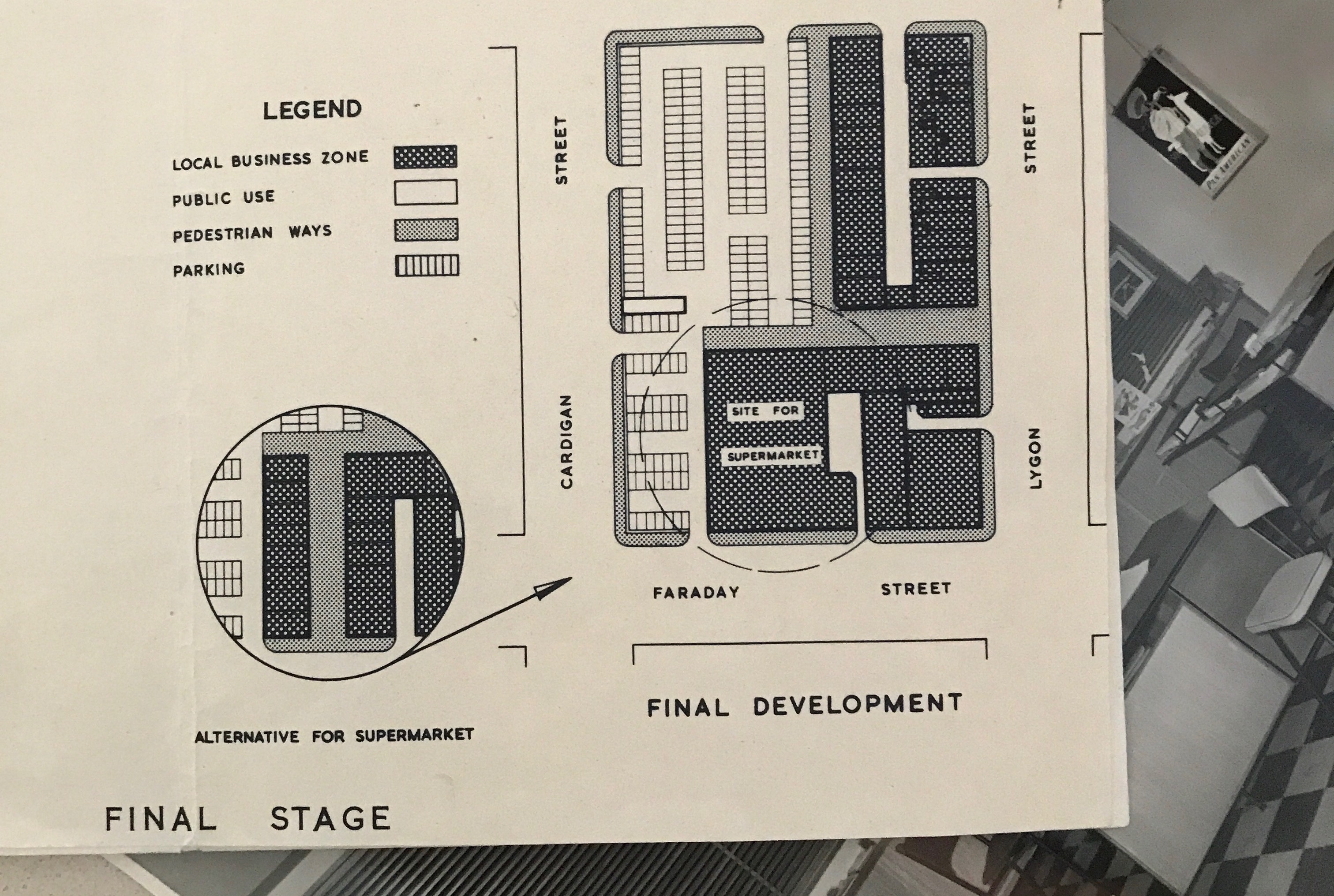
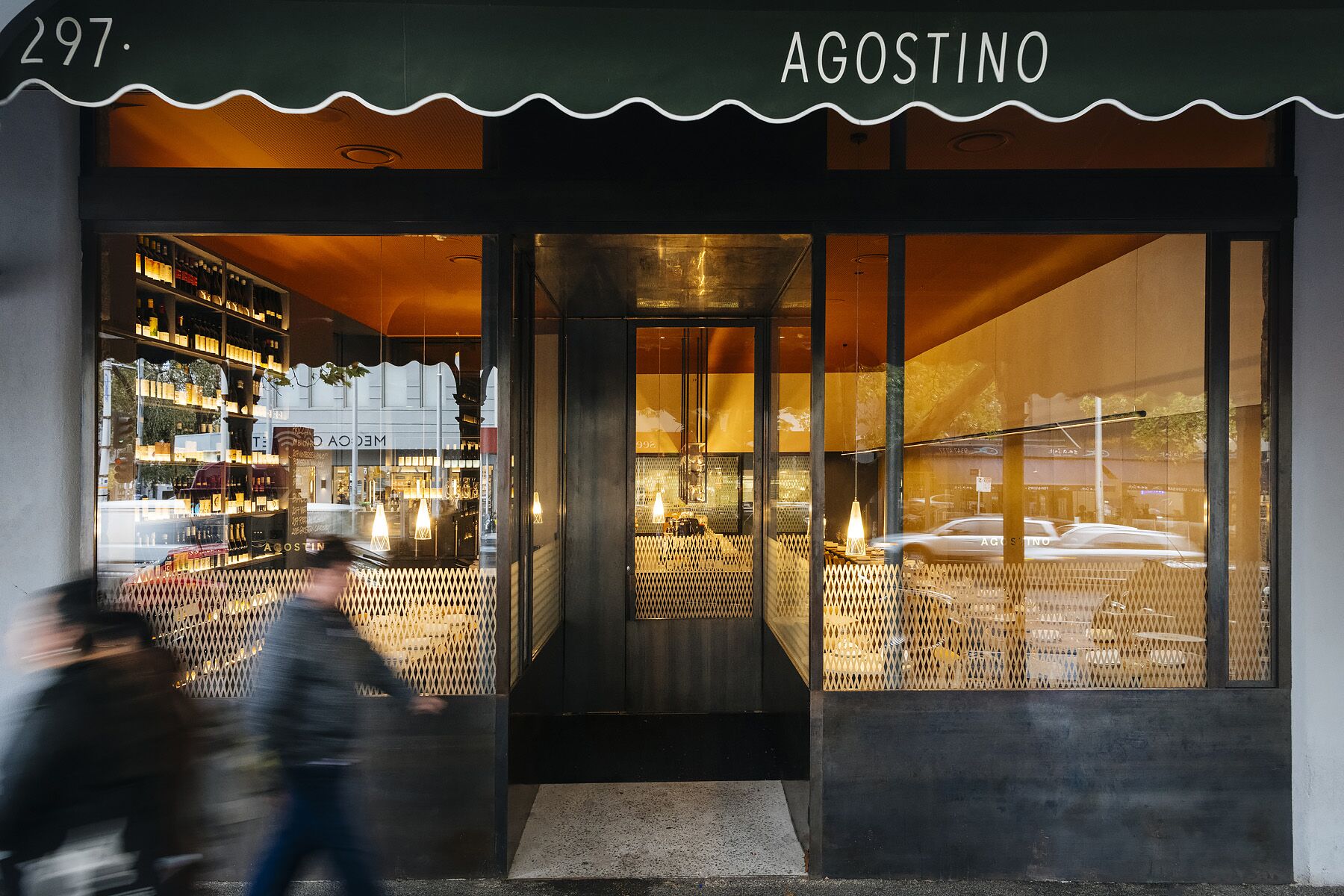
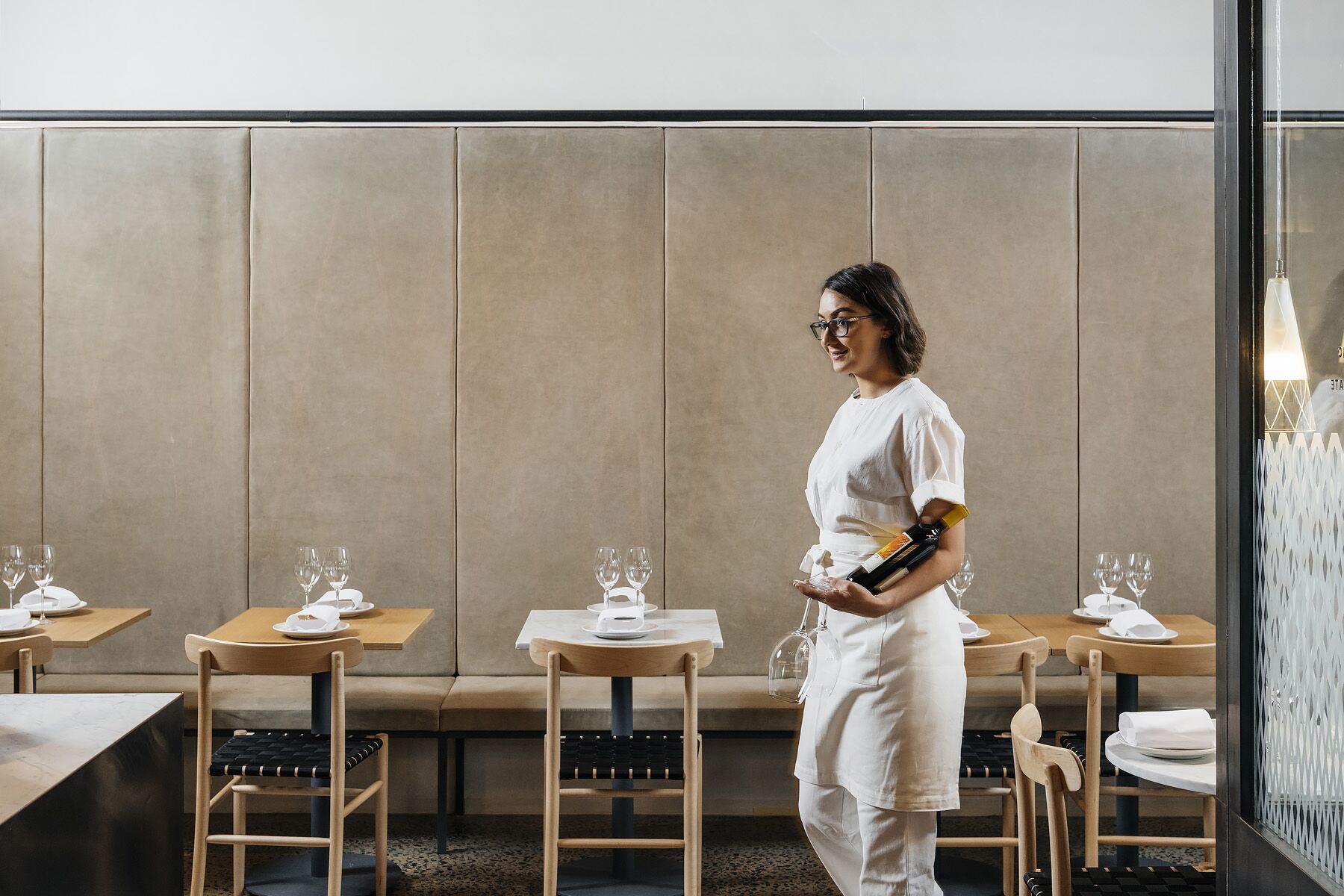
.jpeg)
